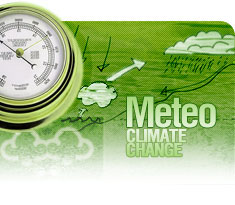https://www.daily-mail.co.zm/?p=58855
AS CLIMATE change issues take centre stage on the world agenda, with top leaders recently signing a treaty to help address the problem, residents of Mumbeji in Kabompo district in North -Western Province have taken steps to adapt.
A right move indeed, as research indicates that those living in rural areas, and depending mainly on natural resources such as rivers and forests will be the most affected when the resources begin to dry.
North-Western Province is probably the highest producer of honey and edible caterpillars in Zambia. This is not even surprising because with its high amounts of rainfall, the province has some of the largest and thickest tracts of forests, and both honey and caterpillar production thrive in highly forested areas. However, traditionally, both activities require the cutting down of trees to create beehives in the case of honey production and to harvest caterpillars that feed on foliage up in the trees. This is a great source of worry in as far as deforestation is concerned.
With deforestation will come less rain, and with it drought.
According to a water project report, The study into the effects of climate change on water resources, the relationship between water, energy, agriculture and climate is a significant one. More and more, that relationship is falling out of balance jeopardising food, water and energy security.
The report also indicates that as the earth's temperature continues to rise, humanity can expect a significant impact on fresh water supplies with the potential for devastating effects on these resources. As temperatures rise, evaporation increases, sometimes resulting in droughts.
To avoid this, or better be prepared should it occur, Caritas Mongu, with the support of the Joint Country Programme (JCP), has initiated projects in Western and North-Western provinces to ensure rural residents are secure. JCP is a merger of Norwegian Church Aid, DanChurch Aid and Christian Aid in Zambia.
One of the projects is the Mumbeji Climate Resilience Project in North-Western Province which is focused on increasing food and income alternative sources for over 400 households through increased capacity of local beekeepers in natural resources conservation and management and the ownership of reliable water resources.
In this project, 100 modern beehives were provided to the community, 50 by Caritas Mongu and the other 50 by Keeper Zambia Foundation, with the main purpose of deterring them from using the traditional method, which eventually dries up an entire tree due to removal of barks.
A bee-keeper, Benjamin Chipango, explained the intricate relationship that exists between honey production, economic empowerment and deforestation.
"High honey production is related to the preservation of flowering trees but the levels have been low due to uncontrolled fires in our area which have in turn killed and reduced the bee population," Mr Chipango said.
And local councillor Frederick Nguvulu emphasised the need for more project ownership from the community.
"While government plays its role of managing forests through the forestry department, community members, with the right training and set of skills, can also play a significant role in preservation of our natural resources," he said.
"We need to exercise good control of our environment by stopping poor forest and land use," said another community member, Dorcas Kasanka.
Another project is called the Community Managed Climate Change Adaptation Project in Kaluwawa area in Lukulu district of Western Province. The aim of this project is to promote access to sustainable water supply for irrigation and domestic use and ensuring seed security through establishment of two seed banks for 200 households.
"We understand that even though the major industrial activities responsible for causing climate change are happening in developed countries, it is the poorer developing countries that will be most affected due in part to inability to adapt," JCP programme officer for emergency preparedness and response, Alick Mwale, said.
Mr Mwale's sentiments are supported by a study on the impact of climate change on developing countries, which states that agriculture is extremely vulnerable to climate change.
"The accelerating pace in climate change, combined with global population and income growth, threatens food security everywhere, more especially in developing countries," the report reads in part.
This is because it is estimated that if current climate change trends continue, fresh water, which is crucial to human society's survival, is expected to become increasingly scarce in future.
The organisations have thus seen the need to implement projects that will help communities be sustainable even in worst conditions.
Mr Mwale said farmers have been trained in water management and irrigation, and water resources groups or conservation committees have been formed to look into ways that can sustain water sources.
"A water and grain storage project to service about 1, 200 people in Kang'ombe, Kalowa and Kambwata villages in Western Province has been established," he said.
Mr Mwale said 30 farmers were trained in sustainable water supply management, while 90 irrigation and water resources groups or conservation committees were formed and members trained.
The training mainly focused on simple irrigation systems such as drip irrigation and use of treadle pumps for farming practices.
"In this project, Caritas Mongu aims to promote sustainable agriculture and control over natural resources for about 1, 200 people in the local villages of Kang'ombe, Kalowa and Kambwata," Mr Mwale said.
And government, through the Ministry of Community Development and Social Services in Lukulu is also involved in this project through mobilisation and supervision.
"Development is not a stand-alone activity, but a process that requires concerted efforts to bring about real change," Ms Queen Kakoma, the ministry's local community development assistant officer, said.
She said the idea behind the project is to provide a dignified life for the rural poor who are the most vulnerable to the effects of climate change, and that government is in full support of this initiative.
The residents are excited by these initiatives.
"The journeys we used to cover to go and fetch water have been reduced because we now have water in our yards," Mr George Shibazumuki of Kalowa Village, said.
"Our women no longer suffer with carrying large buckets of water over long distances and hence they are healthier and happier."
He added: "The running water in our community means that our animals no longer die from thirst, we have better nutrition since we are able to eat and sell our animal products. We have also seen a reduction in water borne diseases such as dysentery and diarrhoea, as well as crocodile attacks since we no longer draw our water from the river."
Women in this community also expressed their gratitude.
"We're now much cleaner since we don't have to cover long distances to draw water for bathing and washing our clothes," Ms Hildah Mubiana, one of the local women, said.
"We're also able to send our children to school because of the income we're getting from selling animal and garden products."
The organisations have also involved traditional leaders in both projects, as they play a vital role in ensuring the continuity of safe practices for climate change adaptability.
Sub Chief Ngongola said the projects saved an important purpose of the villages' sustainability.
"There is need for more unity among ourselves as traditional leaders if we're to achieve anything significant. Way back we used to punish those who burnt forests at wrong times of the year and we will continue to ensure that good practices are exercised," Sub Chief Ngongola said.
And Mr Mwale said JCP will continue to initiate such projects countrywide as climate change adaptation remains an important component in minimising the impacts of the problem and achieving both economic justice and gender justice in Zambia.



 Română
Română English
English


